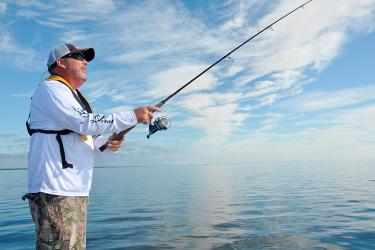Humans are a Key Part of Ecosystems
Humans are an integral part of marine social-ecological systems. People are often considered stressors on the environment and beneficiaries of ecosystem goods and services. However, people can also be ocean stewards, and experience ecosystem benefits and risks. Examples of ecosystem risks in the Pacific Islands include volcanic smog (or vog, air pollution from volcanic gasses), tsunamis, king tides, storm surges, and sea level rise. Benefits range from income and livelihood to physical and nutritional health, social cohesion, heritage, and spirituality. Just as NOAA uses a range of biological and physical sciences to understand the ecological aspects of these systems, our team applies a range of social, cultural, economic, and indigenous sciences to understand and monitor the social aspects of the system.
We examine who uses and depends on marine resources in our region and how their involvement, preferences, and well-being change over time or under different environmental and management conditions. We investigate interactions between these communities and safe sources of seafood, recovery of protected species, and healthy ecosystems. We work with stakeholders and local governing processes and institutions to define research questions, collect data, then communicate and apply results.
We use these methods to sustain three main areas of our fishing communities:
- Commercial fisheries, markets, and businesses
- Non-commercial fisheries and community-sharing networks
- Culture and tradition in fishing communities
Commercial Fisheries, Markets, and Businesses
Fishery managers generally separate commercial fishing activities in the Pacific Islands region into offshore and nearshore ecosystems. Offshore fisheries target large pelagic species that travel between domestic and international waters. Nearshore fisheries include species that occur in both state and federal waters.
Many small boat fishers engage in both of these fisheries. The ability to switch between gear types and fisheries is one of the defining characteristics of fisheries in the Pacific Islands region. Fishers can adapt to weather and varying conditions to ensure viability of their operations. Charter sport fisheries also play a vital role in local fishing and regional tourism-based economies. We monitor and report on key economic information to support benefits to the nation while ensuring the long-term sustainability of all living marine resources.
Non-commercial Fisheries and Community-Sharing Networks
Fishing is an integral part of the Pacific Islands way of life, and non-commercial fishing activities include motivations beyond recreation. Fishers regularly keep fish for home consumption, to share with family and friends, and feature them prominently in cultural events, celebrations, and customs. The term “non-commercial fishing” is defined in the Western Pacific regulations as “…fishing that does not meet the definition of commercial fishing in the Magnuson-Stevens Fishery Conservation and Management Act, and includes, but is not limited to, sustenance, subsistence, traditional indigenous, and recreational fishing.” We include these broader motivations and identities in our research to ensure management reflects the importance of marine resources in terms of diet, social organization, lifestyle, and culture.
Culture and Tradition in Fishing Communities
In the Pacific Islands region, all islands have been officially designated as fishing communities. This is in recognition that fishing and seafood are integral to local community ways of life. It is reflected in the amount of seafood eaten in the region in comparison to the rest of the United States. Its importance is also reflected in the prevalence of marine resources in language, customs, ceremonies, and community events. We work with local community members to integrate cultural and traditional practices and values into fisheries management considerations.
Research Objectives and Activities
In coordination with the research themes identified in the national Human Integrated Ecosystem Based Management Research Strategy, we have identified a number of region-specific research objectives and activities to improve fisheries management, policy, and governance. We also contribute to theory, methods, and research in our disciplinary areas, which include anthropology, sociology, social psychology, economics, and other social sciences.
Monitor and Describe Pacific Islands Fisheries and Fishing Communities
Document status and trends of key fishery dimensions:
- Economics
- Preferences and behavior
- Vulnerability, resilience, and human well-being
- Cultural practices
Examine broader social and economic influences on fisheries and fishing communities using large data sets and secondary data.
Employ place-based research to understand the roles of island cultures, traditional fishing practices, and other place-based social drivers in the current management system.
Assess Impacts of Changing Ecosystems
Expand social, cultural, and economic metrics in integrated ecosystem models.
Utilize models to understand and forecast effects on fisheries and fishing communities from changes in global stressors (such as climate change), social or ecological regime shifts, and changes in governance (such as proposed regulations).
Understand humans’ dynamic responses to ecosystem and management changes via expertise in areas such as compliance, and behavioral economics.
Build Awareness, Relationships, and Social Science Capacity
Utilize the science of communication to effectively share findings of Pacific Islands research with decision makers and stakeholders and enhance public awareness of marine resource issues.
Apply best practices of civic engagement and collaborative governance to improve stakeholder involvement in science and management processes.
Build capacity for social science innovation and literacy, improving integration into management.







